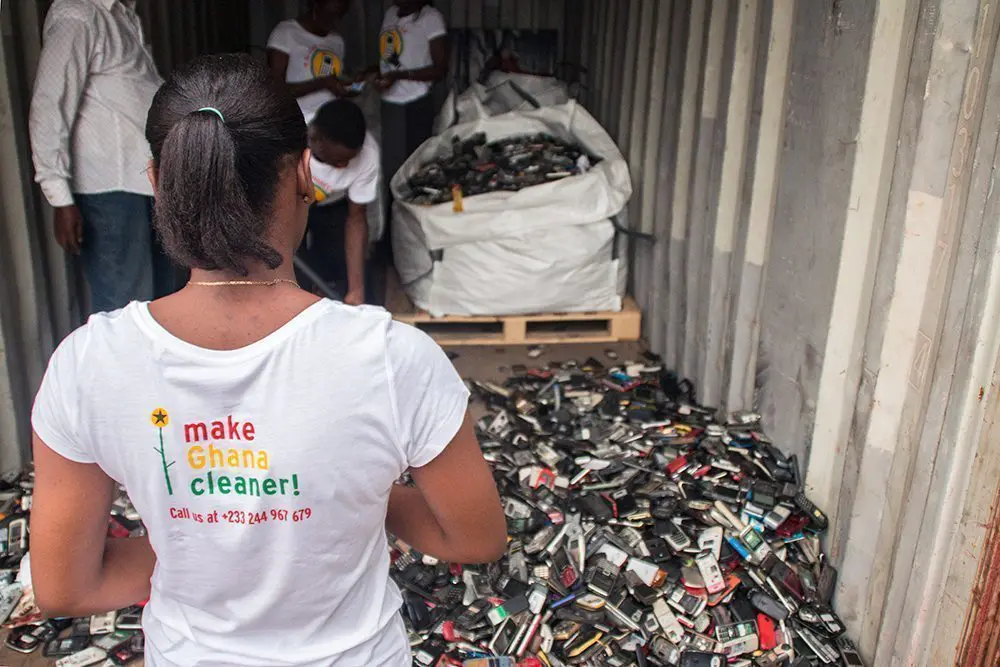West Africa – Rougly one third of Ghana’s soil is covered by forest, however, the country imports some 215,000 tons of discarded electronics every year ‘ 22,000 tons of which are more waste than product. That’s why Ghana urgently needs an ‘integrated e-waste management system’ to save the country’s flora and fauna as well as the future generation, says Dzifa Ahazi, president of think tank Health and Safety (HESAG).
It is time to take recycling in Ghana to the next level, starting with the enforcement of the Hazardous and Electronic Waste Control and Management Act, according to Dzifa Ahazi. He laments that ‘little has been done’ since Ghana signed the Basel Convention aiming to provide a framework for the international regulation for e-waste.
‘As more companies continue to put out new products, consumers continue to buy them, continuing the cycle and generating an ever-growing tide of discarded electronic devices. Industry players will have to continue developing best practices for processing and recycling electronic waste,’ Ahazi argues.
He advocates introducing an integrated e-waste management system involving a combination of sustainable techniques for collection, sorting, recycling, thermal treatment, and pollution control and landfill methods to boost Ghana’s recycling success.
Indeed, a modern approach could kick-off the large-scale recovery of not just iron and steel, but also precious metals like cobalt and highly valuable rare earths like neodymium.
Besides, Ahazi is believes the government could create a lot of job opportunities for its ‘huge unemployed youth’ by partnering with the private sector to establish e-waste recycling centres across the country.
Don't hesitate to contact us to share your input and ideas. Subscribe to the magazine or (free) newsletter.



